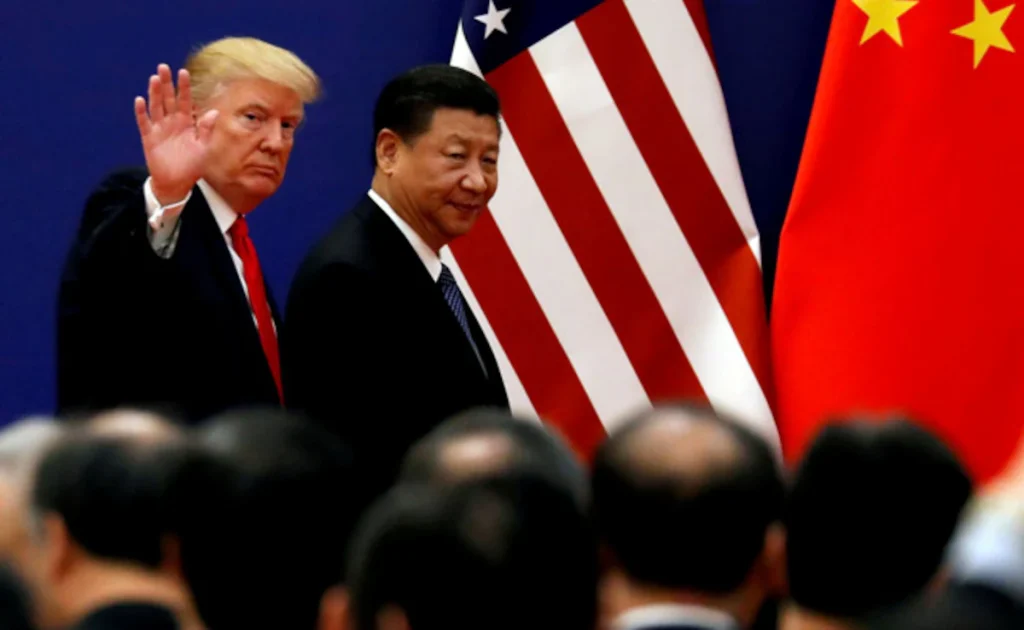The world’s two economic titans, the U.S. and China, are locked in a high-stakes clash, threatening a crucial Trump-Xi Jinping summit set for October 29, 2025, in South Korea.
Just weeks after President Donald Trump touted “progress” in talks, tensions have exploded over China’s rare earth export curbs and U.S. tech bans. With a $660 billion trade relationship at stake, this escalating feud could jolt global markets. Will the summit salvage peace or fuel chaos?
Both sides, brimming with confidence, blame the other, making a breakthrough elusive but riveting for global onlookers.
China’s Rare Earth Power Play
In early October, China stunned the U.S. by tightening controls on rare earth exports, critical for tech and defense industries. Beijing, which dominates 90% of global supply, expanded its rules to mirror U.S. restrictions on chip exports, signaling a bold new stance.
“This is economic warfare,” a U.S. official fumed, caught off-guard by China’s move. The curbs, long in the works, aim to flex Beijing’s supply chain muscle, experts say.
China’s actions followed U.S. bans on tech sales to Chinese firms, escalating a trade war that’s rattled investors worldwide.
Trump’s Tariff Threats
Trump, furious over China’s salvo, threatened 100% tariffs if the summit fails. After a September call with Xi and Madrid talks yielded little, he’s pushing for a deal on trade, fentanyl, and even Ukraine’s war. But optimism is fading.
“The meeting might not happen,” Trump warned, citing China’s “aggressive” moves. U.S. officials are now polling companies to gauge the rare earth curbs’ impact, bracing for supply chain chaos.
The summit, set for the APEC meeting in Seoul, hangs by a thread, with global economies on edge.
A Fragile Summit
Days before the summit, U.S. Treasury Secretary Scott Bessent and Chinese Vice Premier He Lifeng will meet in Malaysia, scrambling to find an off-ramp. Both sides feel they hold the upper hand China sees U.S. political turmoil, while Washington banks on its economic strength.
“Negotiations are tough when each thinks they’re winning,” said Michael Hart of the American Chamber of Commerce in China.
A narrow deal, perhaps on soybean purchases, is the best hope, but grand breakthroughs seem unlikely, analysts warn.
Global Stakes Soar
The trade war’s ripples hit Nigeria and beyond, with markets wobbling over rare earth shortages. Trump’s recent minerals pact with Australia aims to counter China’s grip, while U.S. tariffs on chips and drugs loom.
China could retaliate with antitrust probes or tighter tariffs, as seen in April. The mistrust runs deep, with both sides accusing the other of breaking promises from past talks in Geneva and Stockholm.
This clash isn’t just economic it’s a test of global power, with Nigeria’s news pulse tracking every move.
A Glimmer of Hope?
A Phase One-style deal from 2020 could be a model, but experts like Peter Harrell see only “confidence-building” steps by mid-2026. Trump’s flexible streak offers hope, yet his hawkish team calls China’s moves “economic war.”
Beijing’s rare earth rules are here to stay, signaling a tougher stance in Trump’s second term. As the summit nears, the world holds its breath will it spark a truce or escalate the fight?
READ ALSO: Schneider Electric’s AirSeT Wins WEF Sustainability Award




















